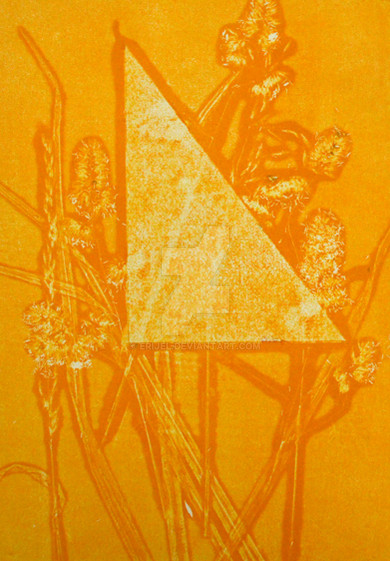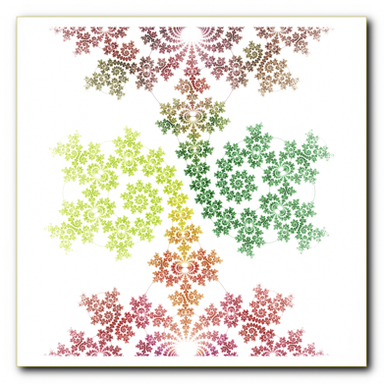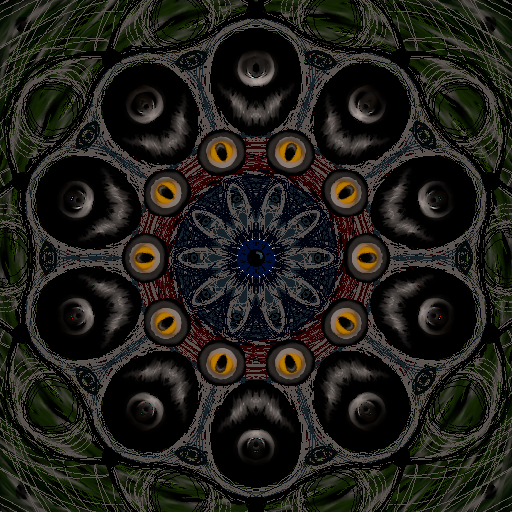HOME | DD
 undefinedreference — Buddhist World Conspiracy
undefinedreference — Buddhist World Conspiracy

Published: 2016-01-10 15:15:12 +0000 UTC; Views: 321; Favourites: 17; Downloads: 4
Redirect to original
Description
Buddhist World Conspiracywww.youtube.com/watch?v=zV2aYn… - Die Antwoord Fatty Boom Boom Official Video. The full version with introductory docudrama designed to manipulate your emotions, and views and opinions as well.
Related content
Comments: 13

I like it how the bright colours twining with the background play sort of kaleidoscopic tricks on your eyes. I watched the video too - that was pretty intense - loved it though.
👍: 0 ⏩: 1

I think it's one of the greatest music videos I've seen so far, though I've never been much of an MTV junkie, so I've probably missed a few good ones. I'm very sensitive to timing in "moving images", and in this one the timing is flawless, like in Adams Family Values, the absolute masterpiece of timing. Whenever I feel tired or relaxed enough to stare at moving images (rarely) I tend to not care a lot about any plot and storyline, as long as the timing is right. Plus of course there has to be good or else really very bad acting. Midsummer Murders is an excellent choice if you're into the latter
👍: 0 ⏩: 1

It reminded me of one of my favourite movies, Jodorowsky's "Holy Mountain". Or Makavejev's "Sweet Movie". Music video-wise, maybe Aphex Twin. I enjoy good timing in music videos, that's why I love to watch them. Even Lady Gaga, even though her music isn't that great the settings are. Surrealism kind of obliterates the need for a coherent plot with visual transformations.
👍: 0 ⏩: 1

I would never rip on Madonna, Lady Gaga and the like. Americans may not be renowned for their finesse, but they are masters of timing, which is largely a result of their ability to keep rehearsing over and over again until either they drop dead or perfection has been reached, and artists like those two are very much in that tradition. Oh, I haven't watched an arthouse movie in such a long time, one of the last ones was The Ice Storm (indeed ages ago), in an actual arthouse on a Christmas Eve. I was alone and decided to not fall into the feeling sorry for myself mood, so I went there on my own. It turned out that at least 3/4 of the audience was there on their own, which turned us into one big family, very comforting
👍: 0 ⏩: 1

It would also help to have a giant pool of talent to choose from and money-making industry to support it - something that misses in Finland because there are so few of us. Korean pop artists also train tirelessly - Korean pop videos are a sort of guilty pleasure for me, I suppose I am a sucker for colours and flashing lights. I have no idea how drugs alter perception as I've never tried them, I just have natural tendencies for surrealism and strange dreams.
👍: 0 ⏩: 1

I wouldn't recommend drugs to anyone. They're basically "imagination on credit". Cool while it lasts but you pay a price later. You apparently believe in Chinese astrology, which like all astrology is unfounded speculative bollocks designed to control the mindless masses in my opinion, but never mind

👍: 0 ⏩: 1

I wouldn't say I "believe" in astrology, I just use it as a poetic tool - with my vivid imagination, it's satisfying to feel my hands turn into tiger-claws sparking fire, and to dash unruly in the bamboo thickets. But I also embody other animals, so it's a question of balance. I think we're rather conditioned by very different sort of brainwashing that is capitalistic in nature, which is much harder to overcome, and there imagination is key - the inner tiger may just as well tear machinery with its teeth. But seriously speaking, where Western astrology crosses with the Greek pantheon and rich ritual life and the Chinese with the incredibly rich iconography of elements and oppositions, they are very subtle systems of psychological dimensions. I think why it feels liberating to me though is because I don't have Chinese parents who would choose me a husband based on our astrological charts, or be forced to attend public rituals at the temple of Hermes - then it would have a wholly another character. I study the relationship between religion and social structure at the university, so my views are a bit complex. 

👍: 0 ⏩: 1

Ah, so I don't have to tell you about rationalistic "dry matter"
The relationship between thought systems and their iconography is at least as interesting. If there is any, that is. Let's say that China 2500 years ago had been converted to Zoroasterism. There would still be an iconography, and, being embedded in Chinese culture and traditions, it would probably still be very much Chinese in nature, in the way in which we know it these days. The quality of the artwork versus the ideology is something I'm very much interested in, because at a rational level I personally hate stuff like Theosophy with a passion, yet I've found that almost all of my favorite artists from the early 20th century were very much into it. So who takes the credit, the artists themselves and their talent, or the teachings they adhered? On Theosophy pages you will certainly find plenty of claims that it was their "spirituality" that made them great artists. But was Michelangelo a great artist BECAUSE he was a Catholic? I suppose you're exhaustively familiar with the theme
I don't really know what capitalism is exactly. I hardly see it as an ideology. It's essentially about humans wanting more money so they can buy more and nicer stuff. It can hardly get more human than that. If by capitalistic propaganda you mean advertising, then it is indeed an extremely powerful tool. Most humans don't even want to have everything, they just want a little bit more than the neighbors have. Commercial advertising sits precisely on top of this razor edge. It doesn't say "You can afford this, but first you have to get fabulously rich". Instead it says "You can afford this today, possibly by taking a little loan which you will pay off later. What me worry? Buy now!". I'm not sure what alternatives to capitalism there are though. All attempts to change human nature have so far failed (in fact, to return to the previous issue, I know of no thought system that has so effectively discouraged artistic talent than communism has). Of course there's the issue of consumerism versus sustainability, but that's an entirely different issue. That can be solved within a "capitalist" context as well, in the sense of free trade etc. If I see a problem with the Western world it's that we aren't capitalistic enough. We dump our excess products onto African markets while putting up trade barriers against African products at the same time. That isn't capitalism, it's protectionism. And protectionism does destroy lives and livelihoods. If we were "honest capitalists" we would bring down all trade barriers and learn to live with the consequences of the very system we created.
And so on
👍: 0 ⏩: 1

You're right that "culture" often entails a sort of distanced fascination with something - this hipsterish, selectionist bias is related to some accusing multiculturalists of excessive relativism in embracing cultures that behind the alluring aesthetic, are based on inequality and violence. This comes especially to the fore when it's a question of whether we should accept or try to modify the lifestyle of immigrants - when they're on our own turf instead of those remote places "out of sight, out of mind", this suddenly becomes a bigger issue. As long as we don't see or know of the Bangladeshian children making our jeans and will not suffer personally from the breakdown of personal safety and wellbeing in a society as a whole as a result of such stark economical abuse, "they" can have "their" culture. But as soon as the conditions for this exchange are no longer dominated by us, so that we may bring these Others closer or push them away at will, even different style of dress may become a marker of annoyance, an eyesore and something like a personal attack.
Xenophobia is the other pole of attitudes towards "cultural difference" - smooth adaptation may be difficult. Isn't it exactly because of those opening borders in an economic sense, that immigration and difficult mixtures are happening? If all trade barriers would come down, wouldn't it lead to even greater chaos and polarisation? As a case in point, Finland has always been forced to remain somewhat protectionistic, because small or less developed countries typically get the shorter end of the stick, as we're unable to keep megacorporations located here - for a while we had Nokia before it was purchased by Microsoft. I wouldn't want to see a McWorld where local businesses have no chance of growing their shares in domestic markets without interference from businesses that have such strong global dominance that they can afford to take huge losses in one place just to retain their monopoly overall.
Then again, maybe national states will be an antiquated concept in a few hundred years, and global connections will slowly turn the world into a de facto United States of the World. I wonder what is even happening to the EU right now, with Brexit and others maybe jumping out of the bandwagon. The problem is that complex systems are so unwieldy and democracy is often so unpredictable and based on populism. Sometimes it seems that university professors may say whatever they want, but decisions will still be made on the basis of popular vote based on individual whims and limited perspectives. Humans are not very rational, as a species, and a tangled mess of political shifts compounded by a sensationalist press make exerting any sort of state control necessarily incomplete.
But dictatorship isn't a choice either, as it causes too much resentment. I do wonder what would be the most "natural" form of government. "Nature" in itself is not necessarily very benign, death, uncertainty and competition are always present, even within what could be called "societies", even though the forms of harmony and co-operation in the animal kingdom may also be surprising. Haven't we made a Leviathan, a beast to protect us from a war of all against all, a kind of essentialist fiction of statehood and morals, an unspoken contract of accepting loss of freedom for safety? It would be difficult to imagine humans being essentially "equal" in a society, however. Like in nature, some of us have more brawn, wits, or better position as a default at birth.
I hope that ethical consumerism and sustainable business will have an edge in global markets in the future, but I'm not sure if that's going to happen. The problem is that equality just doesn't naturally happen with the creation of society, it has to be sustained. As for capitalist ideology, advertising is one part of it, but it goes deeper than either buying or not buying things. The problem is the very lies and flat polished-up unrealities that advertisements and entertainment offer us. They make you lose appreciation for what is entirely natural and not presented in an unrealistically positive or sensationalistic light. It slowly alienates us from the core of our experience, which cannot be monetized or turned into riveting stories. I think there's something wholly unnatural and worrying about the way people are embodied in their Facebook profiles and CV's these days. If you stand under a tree and don't take a photograph to share it, will you alone be able to feel the experience as authentic? Isn't there a slight unease that if you leave the rat race, you will drop out altogether, become a kind of a non-entity?
What interests me is, how is it possible to live a life of contentment and meaning, without feeling as if you have sold out? I find in bygone cultures a lot worth salvaging, and personally study a revivalist group that reconstructs Heathen ways in Finland, and it carefully excludes national-socialist interpretations in favor of enjoying our own culture in a way that is not based on holding in contempt those of others. One of the central questions is that, using all those carefully archived folkloristic materials and living by them while getting re-acquainted with folk handicrafts and self-sustaining agriculture, can you say that culture has 'died' as now it has to be revived, creating endless suspicions of whether or not it's 'authentic'? A lot of the mythological strains of our folk culture have carried on in our consciousness either as traditions and habits or mythologies we've learned at school. Finland has an advantage in having been left in such backwards state until the advent of modern recording and archiving methods, that our natural polytheist and animist ways might still be available for re-construction. And what hasn't changed is the nature - 70% of Finland still being coniferous woodlands, I think it makes sense to find divinity in the spirits of pine trees than bushfires in the desert a la Christianity.
But the question of the relationship between one's expression, life and religion is one of personal dedication, of course. There can be Theosophists very poor at art and at life, as there can be those that have integrated it into something that rather helps to reveal deep structures of the self than obscuring them. I think long-preserved, rich and diffuse traditions sort of protects us sometimes from poor ideas that would've died out with the passing of generations. Then again, the blind spots and embedded social structures may have calcified. But luckily, usually every system usually contains the possibility for its own inversion - thus Christianity needs demons. As a sort of Jungian, I believe the rising of the shadow-side of something on a personal level is always needed, and sometimes on the level of society as well - but coming to consciousness of what has been repressed may be painful. But this dialectics is never complete. This pertains to the basic fact that being addicted to any one way of thinking, religious or otherwise, regardless of context, leads to problems. That's why you need to be dynamic - what is the ideal amount of structure at any given point, or to what extent you need to take into account the criticisms from others etc. Just following the herd may lead you down the cliff.
Sorry, I have no idea why I wrote so much. 
👍: 0 ⏩: 0

i can't decide whether you created a colourful paradise or a colourful hell ... i'm just waiting for dalai lama's approval
👍: 0 ⏩: 1

It's Shambhala on heavenly fire
👍: 0 ⏩: 1

good karma
👍: 0 ⏩: 1

Indeed a karmatographer's dream
👍: 0 ⏩: 0
























